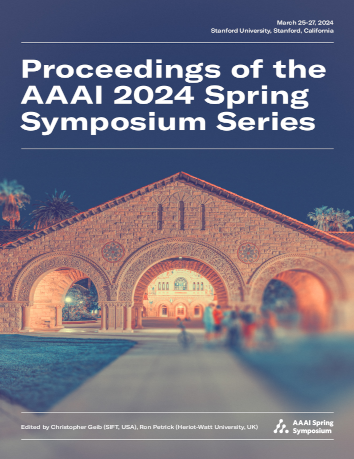Transactive Memory in Caregiver Networks Using Artificial Intelligence
DOI:
https://doi.org/10.1609/aaaiss.v4i1.31789Abstract
As the population ages and an increasing number of adults want to age in place in their homes, they will rely on a network of family, friends, and other caregivers to provide various forms of assistance. Coordination across this loosely connected network is a common challenge, requiring information sharing, schedule alignment and task coordination. Here, we propose that artificial intelligence (AI) may be used to develop tools to help loosely connected care networks develop better collective cognition. Specifically, we focus on helping members of care networks develop a transactive memory system, or a shared system for storing and retrieving knowledge that expands the capacity of a group to effectively use information. In this paper, we describe the motivation for our study, and our planned research program based on the use of an online experimental platform facilitating human-AI collaboration to develop and test tools to enhance collective cognition in care networks.Downloads
Published
2024-11-08
How to Cite
Kuznetsov, A., Chao, P.-Y., Dishop, C., Brown, A., & Williams Woolley, A. (2024). Transactive Memory in Caregiver Networks Using Artificial Intelligence. Proceedings of the AAAI Symposium Series, 4(1), 168-172. https://doi.org/10.1609/aaaiss.v4i1.31789
Issue
Section
Artificial Intelligence for Aging in Place - Short Papers

